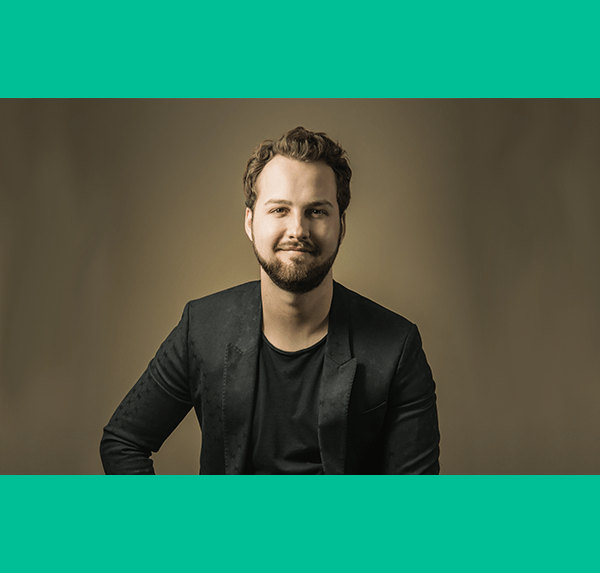Stemming from a long-time passion for technology, EU alumna, Noha Salama, embarked on her career with a bachelor’s degree in computer science. This gave her the opportunity to break into technical sales roles, which she then paired with an executive MBA from EU. Her determination and love for the digital world led to her position as senior sales director at a market leader in cloud services. She has also recently gained a corporate director’s certificate from the International Finance Corporation, which was sponsored by UN Women.
Although originally from Cairo, Noha has lived in Munich for most of her career. In her free time, she enjoys sailing, playing tennis and learning languages. She already speaks five languages; English, German, Arabic, Spanish and French, and would like to start learning a sixth: Italian!
Could you tell us about your career path so far?
After earning my MBA from EU, I was approached by McKinsey Consulting, who were looking for a senior consultant here in Germany. However, I preferred to continue my career in IT sales. I have since worked in IT project management, as well as technical account management, new business development, global account management for IT companies as well as leadership at various IT companies. My most rewarding and exciting role was country manager at several IT startups.
Could you explain your current role as senior sales director?
I would describe it as a trusted advisor. I provide consulting on digital transformation for media corporations, such as broadcasters and publishers. I show them how they can deliver their digital content faster and in a more secure way.
What inspired you to start your career in technology?
I got my first Apple computer and joined a computer club at high school and since then I’ve been mesmerized by technology!
It’s interesting because I was also very keen on languages and international politics from a young age. At one point, I was contemplating studying international politics and going into the diplomatic corps or studying computer science. So, in my first degree I combined both; I majored in computer science and minored in political science.
After a lot of thought, I saw that I would have very broad career opportunities studying computer science and, in retrospect, I’m glad I chose to pursue a career in IT.
What makes working in software sales unique?
It’s very innovative, you always have to learn new technologies. It’s never routine, you never get two days that are the same. Ever since I started working in IT, it has been very fast-paced, dynamic, innovative and intellectually stimulating, which are all important to me.
What is the key to customer retention?
The key to customer retention is achieving a trust-based, long-term relationship with the customer. To be hospitable, not focusing on a transaction or closing a tactical deal. First, the salesperson has to establish themselves and their company as a trusted thought leader and, by establishing this rapport, they can slowly earn the customer’s trust and then work on business.
What are the key considerations for companies embarking on digital transformation?
First, they have to analyze their processes. They have to get the right consultation from companies specialized in providing digital transformation services, such as system integrators or consultancy firms, and then analyze and modernize their business processes and workflows prior to embarking on the digital transformation journey.
How would you say your leadership style has evolved over the years?
I used to be more focused on operations and execution. Now, I’m also aware of sustainability, corporate governance, and diversity, which are very important to me. Twenty years ago, I wasn’t aware of these topics because they weren’t very omnipresent. I see that there’s still a lot to be done in these areas and this motivated me to enroll in the Corporate Director Certification Program. I am very grateful for the sponsorship from AUC as well as the UN Women’s organization.
What are the main challenges for the next generation of female leaders?
The main challenges for female leaders are getting equal treatment with regards to career progression and salary, building alliances with decision-makers, achieving work-life balance, re-entering the workforce, fighting imposter syndrome, overcoming fear and perfectionism and becoming a member of the C-suite.
Is there a difference in the mindset of digital leaders compared to a more traditional leadership model?
Yes, from my perspective, digital leaders probably have more challenging roles because of the fast-paced nature of digital transformation and the complexity involved. Digital leaders always have to be a few steps ahead of the curve and tackle many challenges, both internally and externally. For example, the culture change. When you’re transforming your corporation digitally, you don’t only have to evaluate the different technologies and different vendors, it’s also about the culture change within your own corporation. You have to get the buy-in of the internal stakeholders and ensure they have the same mindset.
What are the most common cyber threats that business owners face today?
One is ransomware, when hackers attack your websites or applications, and ask you to give them a very high ransom otherwise they will sabotage your data.
One of the largest ransomware attacks in 2021 targeted a natural gas pipeline in the U.S.A., which had to shut down for five days, resulting in more than 10,000 gas stations across the southeastern states being out of fuel.
Is this the case for all sectors and sizes of business?
There are so many attacks that are disclosed and undisclosed happening in every sector. The attacks happen randomly, you never know how or when they will happen.
How did EU help you on your career path?
The MBA helped me gain a broad knowledge of international business, marketing and leadership. It also helped me with my career because recruiters and hiring companies are impressed to see that I accomplished an executive MBA program while working full time.
When I was studying for my MBA, I had a career in field sales and was going on business trips, and then going to lectures on Friday evenings and Saturdays and doing assignments. This meant being very, very disciplined and signals to recruiters how driven and ambitious a person is. It also strengthened my coping skills because I know that no matter how demanding a situation is at work, I have overcome a more demanding and challenging time.
What were the main skills or concepts you acquired at EU that have helped you in your career?
Probably international business and the organizational structure of companies. Many aspects of international business and accounting, how to read a balance sheet or annual reports and how to interpret a financial statement. I also thought learning about marketing and how to plan and execute marketing strategies was very exciting and helped my career.
Do you have advice for students who will start working in sales?
Yes, in sales you have to have perseverance and self-motivation. Especially when you’re working in new business development and you’re doing outbound reach, you often don’t get any replies or get no for an answer. You can’t take it personally; just keep going, every day is a new day. You must think and act positively.










